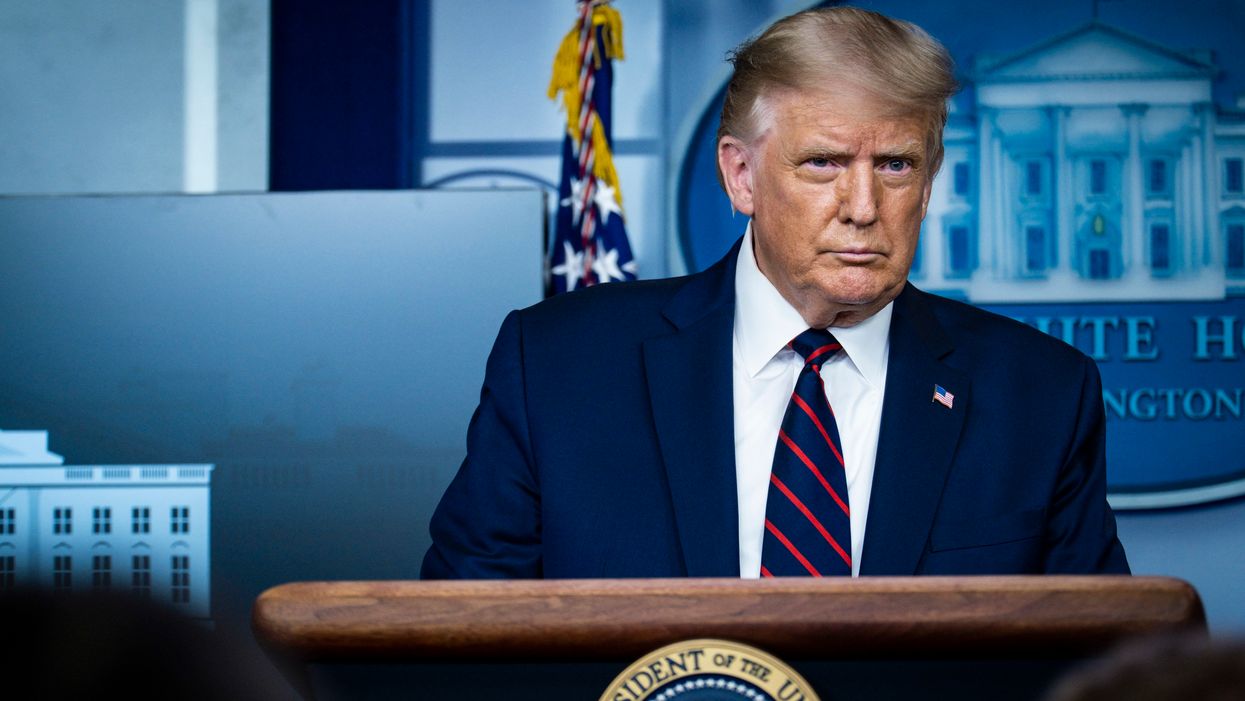LaRue is a former deputy director of the Eisenhower Institute, a nonpartisan think tank at Gettysburg College, and of the American Society of International Law.
Back in April I argued in this space for remaking the presidency, with a term of six years followed by the chance for the incumbent to win a second term of just three years.
By better matching the electorate's behavior (by heightening the voters' power to render a verdict during their "six-year itch") and better reflecting the terms' relative value (to minimize the second term "curse"), this structure would produce numerous benefits — ranging from easing the relentless pressure of permanent campaign to incumbents being lame ducks for a third of their presidencies, but not half.
Despite such benefits, the proposal runs head-on into the presidency of Donald Trump. The prospect of two additional years of his service horrifies many people, including me.
It is useful to recall the two main scenarios for service in the White House: a president serving four years, or winning re-election and serving eight years. The second scenario now seems implausible, but not impossible, for the incumbent.
Under my proposal, we would have two more years of Trump — but it would be highly likely we would have no more than that, because he would be facing the even higher reelection hurdle at the six-year itch mark.
If he serves only one term, the idea of it lasting two more years seemingly becomes problematic. This is not the case, and there are four reasons why.
First, the reality that reelection after four years has become too easy — based on factors I've labeled the "four-year crutch" — would not really be countermanded by a Trump defeat. His presidency is so anomalous that his tenure has no direct relevance to questions about term lengths or any governing structure — save, of course, the Electoral College.
Second, any change in presidential term lengths would require a constitutional amendment and so would start many years, if not decades, in the future. This long time horizon is worth a reminder not because Trump will be long gone by then, not matter what, but because our nation's politics will have to change significantly before changes to term lengths will ever be seriously considered. Extensive civic education and other reforms to improve voting and electioneering would have to occur, producing a political environment more resistant to a narcissistic demagogue's appeal than in recent years.
Third, with the nation now confronting its glaring mistake of electing a huckster as president, it is doubtful we will soon repeat such a grievous error. Trump's authoritarian venality, corruption, incompetence and truthlessness will become clearer after November — whether he's a furious lame duck for 11 weeks or somehow re-elected and unfettered for four years. We also will learn a great deal about his presidency after he leaves office. When all the redactions are lifted and the details of Trump's finances are exposed, the picture of the Trump administration will likely be far darker than it is today.
Finally, even if a Trumpian sort of populist is elected in the future, impeachment and conviction remain a viable means for removing such a president — and this process would likely be more effective if attempted during a longer, six-year first term. Whether rushed or too exclusively partisan, Trump's impeachment last year came with no real prospect of conviction and removal. The Democratic House leadership felt pressure to act sufficiently in advance of the 2020 election, which foreclosed the option of gathering more evidence of his unsuitability for office. Such additional material may not have proved equivalent to Richard Nixon's Oval Office tapes, but its cumulative weight may have started cracking the support of Trump's Senate enablers.
These considerations all signal that the Trump presidency is mostly irrelevant to the idea of changing presidential term lengths to a six-year first term and a three-year second term. If anything, it may strengthen the case for addressing the underlying challenges that led to Trump's election in the first place — including structural ones, such as term lengths and the Electoral College.
Trump may be the civic wake-up call we end up having needed. That he has boosted civic education and engagement in America is noted by scholars and analysts such as Jeffrey Tulis, E.J. Dionne, Jr., Thomas Mann and Norman Ornstein. And we must acknowledge that the 2018 blue wave may have been but a ripple had Hillary Clinton been elected in 2016, as such midterms almost never favor the incumbent president's party.
The good news is that Trump will find himself — sadly, we are not there yet — at the bottom of the civic pit he has been digging deeper. There will only be one way out: Up, and without him. Competence in governance will again count for something. Civility in public affairs will count for more. Concern for others will return as the benchmark of public service. Compromise will regain at least some of its value.
Baseball fans know the game offers lessons as well as escape. "I will be told I am an idealist. I hope so," Commissioner Bart Giamatti said in announcing superstar Pete Rose's 1989 banishment for gambling on the sport. He said baseball was a "resilient institution," and that "no individual is superior to the game."
And like baseball after Rose was barred, governance after Trump's tenure will get better — even if it takes several seasons, or elections. Our ingenuity will get us out of tight spots, even those our Founders, our predecessors and our own peers created. And constitutional change — such as altering presidential term lengths, will not seem as far-fetched as it does at the moment.




















Trump & Hegseth gave Mark Kelly a huge 2028 gift